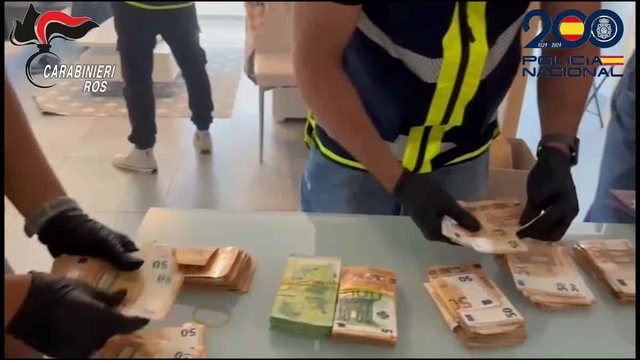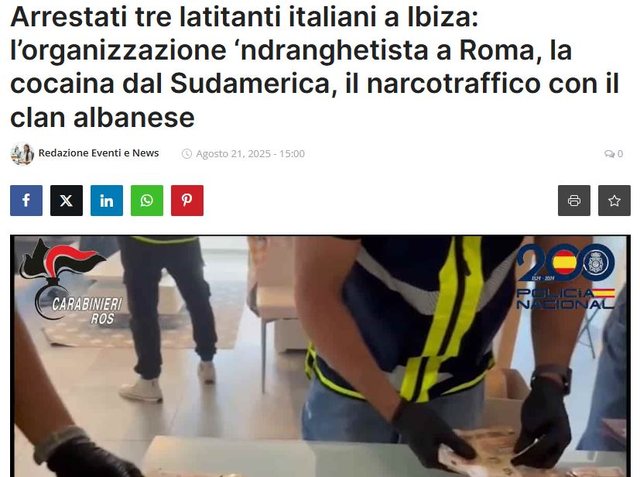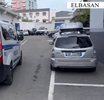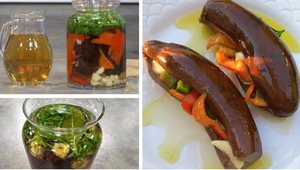
Three Italian fugitives arrested in Ibiza as part of Rome's 'Ndrangheta, drug trafficking with Albanian clan


Three Italian fugitives have been arrested in Ibiza, the Balearic island known to international tourists for its nightlife and beaches. They were the subject of a European arrest warrant: they are seriously suspected of being key members of an 'Ndrangheta-based criminal organization dedicated to drug trafficking.
One of the three, caught during his escape, was also wanted on separate charges of drug trafficking, assault and resisting a public official. The arrest was issued as part of the ROS investigation called ANEMONE, in which 24 suspects were arrested in Italy and Albania on July 8.
The search and arrest operations, coordinated by the Rome Public Prosecutor's Office (DDA) in collaboration with EUROJUST, were carried out by the Carabinieri of the ROS (Special Operations Unit) with the Spanish National Police, also with the support, for aspects of international cooperation, of the International Police Cooperation Service (SCIP) – CAN Project (Interpol Cooperation against the 'Ndrangheta).

The fugitives found in Spain are accused of conspiracy to engage in international drug trafficking, aggravated by mafia methods. The organization is said to be headquartered in Rome and operates both in Italy and abroad. Its leader is a 57-year-old from Calabria, arrested last July, who has already been convicted for being a senior member of the Volpiano bar, in the province of Turin, a branch of the Platì bar, in the province of Reggio Calabria.
According to the investigation, the mafia leader moved to Rome in the early 2000s and took control of the San Basilio area, prompting the formation of a criminal organization led by and made up of his children. The organization allegedly established links with an Albanian criminal organization described by investigators as “joint”. The latter was allegedly used for logistical aspects, such as the extraction of cargo from Spanish and Dutch ports and its subsequent transfer, as well as for the distribution of substances to other areas of the capital.
Cocaine coming from South America was imported via containers to the ports of Spain, the Netherlands and Italy, especially in Gioia Tauro. It was then sold retail on the Roman market.
The organization used other Calabrian intermediaries. The Rome prosecutor's office also charged a drug trafficker with torture for failing to pay a drug debt. Searches uncovered handwritten notes detailing drug trafficking activity, forged documents used by the fugitives to conceal their identities, and approximately 35,000 euros in cash, as well as small amounts of cocaine, in apartments occupied by the arrested men in Ibiza and Barcelona.

The Ukraine summit that ignored the tough questions
ideas
top
Alfa recipes
TRENDING 
services
- POLICE129
- STREET POLICE126
- AMBULANCE112
- FIREFIGHTER128





























